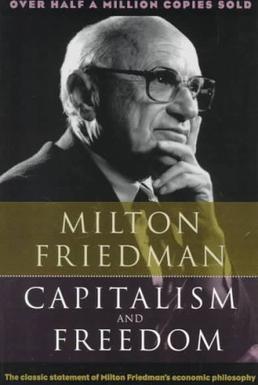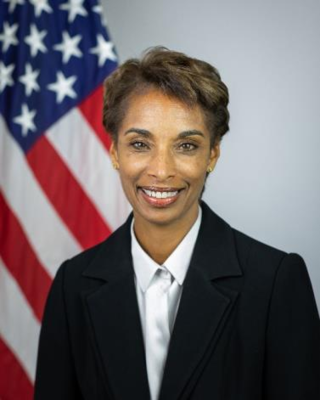Related Research Articles

Cultural imperialism comprises the cultural dimensions of imperialism. The word "imperialism" describes practices in which a country engages culture to create and maintain unequal social and economic relationships among social groups. Cultural imperialism often uses wealth, media power and violence to implement the system of cultural hegemony that legitimizes imperialism.
Education reform is the name given to the goal of changing public education. The meaning and education methods have changed through debates over what content or experiences result in an educated individual or an educated society. Historically, the motivations for reform have not reflected the current needs of society. A consistent theme of reform includes the idea that large systematic changes to educational standards will produce social returns in citizens' health, wealth, and well-being.
A school voucher, also called an education voucher in a voucher system, is a certificate of government funding for students at schools chosen by themselves or their parents. Funding is usually for a particular year, term, or semester. In some countries, states, or local jurisdictions, the voucher can be used to cover or reimburse home schooling expenses. In some countries, vouchers only exist for tuition at private schools.
School choice is a term for education options that allow students and families to select alternatives to public schools. It is the subject of fierce debate in various state legislatures across the United States.

Charter schools in the United States are primary or secondary education institutions that are public schools which are publicly funded and operate independently, rather than being controlled by local school districts. Charter schools have a contract with local school districts or other authorizing bodies which allow them to operate. These contracts, or charters, are how charters schools bear their name. They do not charge tuition, as they are funded with public tax dollars. Charter schools are subject to fewer rules than traditional state schools in exchange for greater accountability. Proponents argue that they are meant to serve underserved communities that wish to have alternatives to their neighborhood school. All charters are tuition free and open to all students, with the vast majority being either freestanding and independent and run as a non-profit organization. However, there are some for-profit management organizations that hold charters, though these are only allowed in Arizona. Only non-profit charters can receive donations from private sources, just the same as traditional public schools.

Capitalism and Freedom is a book by Milton Friedman originally published in 1962 by the University of Chicago Press which discusses the role of economic capitalism in liberal society. It has sold more than half a million copies since 1962 and has been translated into eighteen languages.

Samuel Stebbins Bowles, is an American economist and Professor Emeritus at the University of Massachusetts Amherst, where he continues to teach courses on microeconomics and the theory of institutions. His work belongs to the neo-Marxian tradition of economic thought. However, his perspective on economics is eclectic and draws on various schools of thought, including what he and others refer to as post-Walrasian economics.
Caroline Minter Hoxby is an American economist whose research focuses on issues in education and public economics. She is currently the Scott and Donya Bommer Professor in Economics at Stanford University and program director of the Economics of Education Program for the National Bureau of Economic Research. Hoxby is a John and Lydia Pearce Mitchell University Fellow in Undergraduate Education. She is also a senior fellow at the Hoover Institution and the Stanford Institute for Economic Policy Research.

Eric Alan Hanushek is an economist who has written prolifically on public policy with a special emphasis on the economics of education. Since 2000, he has been a Paul and Jean Hanna Senior Fellow at the Hoover Institution, an American public policy think tank located at Stanford University in California. He was awarded the Yidan Prize for Education Research in 2021.
Education economics or the economics of education is the study of economic issues relating to education, including the demand for education, the financing and provision of education, and the comparative efficiency of various educational programs and policies. From early works on the relationship between schooling and labor market outcomes for individuals, the field of the economics of education has grown rapidly to cover virtually all areas with linkages to education.

Cecilia Elena Rouse is an American economist who served as the 30th Chair of the Council of Economic Advisers between 2021 and 2023. She is the first Black American to hold this position. Prior to this, she served as the dean of the Princeton School of Public and International Affairs at Princeton University. Joe Biden nominated Rouse to be Chair of the Council of Economic Advisers in November 2020.
Educational capital refers to educational goods that are converted into commodities to be bought, sold, withheld, traded, consumed, and profited from in the educational system. Educational capital can be utilized to produce or reproduce inequality, and it can also serve as a leveling mechanism that fosters social justice and equal opportunity. Educational capital has been the focus of study in Economic anthropology, which provides a framework for understanding educational capital in its endeavor to understand human economic behavior using the tools of both economics and anthropology.
Kent E. Calder is the Interim Dean of the Johns Hopkins School of Advanced International Studies (SAIS). He serves as the Director of the Edwin O. Reischauer Center for East Asian Studies, and is also the Edwin O. Reischauer Professor of East Asian Studies at SAIS. He previously served as the Vice Dean for Faculty Affairs and International Research Cooperation at the Paul H. Nitze School of Advanced International Studies (SAIS), Johns Hopkins University.
A charter school is a school that receives government funding but operates independently of the established state school system in which it is located. It is independent in the sense that it operates according to the basic principle of autonomy for accountability, that it is freed from the rules but accountable for results.
The Programme for International Student Assessment has had several runs before the most recent one in 2012. The first PISA assessment was carried out in 2000. The results of each period of assessment take about one year and a half to be analysed. First results were published in November 2001. The release of raw data and the publication of technical report and data handbook only took place in spring 2002. The triennial repeats follow a similar schedule; the process of seeing through a single PISA cycle, start-to-finish, always takes over four years. 470,000 15-year-old students representing 65 nations and territories participated in PISA 2009. An additional 50,000 students representing nine nations were tested in 2010.
Dennis N. Epple is a US American economist and currently the Thomas Lord University Professor of Economics at Carnegie Mellon's Tepper School of Business. He belongs to the leading scholars in the fields of the economics of education, and urban and real estate economics.
Eric P. Bettinger is an American economist and currently works as the Conley-DeAngelis Family Professor of Education at the Stanford Graduate School of Education. He ranks among the world's leading education economists.

Susanna Loeb is an American education economist and director of the Annenberg Institute at Brown University. She was previously the Barnett Family Professor of Education at the Stanford Graduate School of Education, where she also served as founding director of the Center for Education Policy Analysis (CEPA). Moreover, she directs Policy Analysis for California Education (PACE). Her research interests include the economics of education and the relationship between schools and educational policies, in particular school finance and teacher labor markets.

Richard Rothstein is an American academic and author affiliated with the Economic Policy Institute, and a senior fellow (emeritus) at the Thurgood Marshall Institute of the NAACP Legal Defense Fund. His current research focuses on the history of segregation in the United States with regards to education and housing.
Helen F. Ladd is an education economist who currently works as the Susan B. King Professor Emeritus of Public Policy and Economics at Duke University's Sanford School of Public Policy. In recognition of her research on the economics of education, she has been elected to the National Academy for Education and the National Academy of Sciences.
References
- ↑ Profile of Martin Carnoy on the website of Stanford University. Retrieved April 1, 2018.
- ↑ Profile of Carnoy on the website of EPI. Retrieved April 1, 2018.
- ↑ Profile of Carnoy on the website of CEPA. Retrieved April 1, 2018.
- ↑ Profile of Carnoy on the website of Stanford University. Retrieved April 1, 2018.
- ↑ "FSI | CDDRL - Martin Carnoy". cddrl.fsi.stanford.edu. Retrieved 2018-08-07.
- ↑ Profile of Martin Carnoy on the website of the Lemann Center. Retrieved April 1, 2018.
- ↑ Bowman, M. J. (1976). Review of Education as Cultural Imperialism. Economic Development and Cultural Change, 24(4), pp. 833–841.
- ↑ Koehl, R. (1975). "Review: Cultural Imperialism as Education: An Indictment". Comparative Education Review, 19(2), pp. 276-285.
- ↑ Drysdale, R.S. (1975). Review of Education as Cultural Imperialism by Martin Carnoy. The School Review, 84(1), pp. 147-151.
- ↑ Ikenberry, G.J. (1986). Review of The State and Political Theory by Martin Carnoy. American Journal of Sociology, 91(6), pp. 1246–1247.
- ↑ Carnoy, M. (2007). Cuba's Academic Advantage: Why Students in Cuba Do Better in School. Palo Alto, CA: Stanford University Press.
- ↑ Lutjens, S. L. (2009). Review of Cuba's Academic Advantage by Martin Carnoy. Comparative Education Review, 53(1), pp. 147–149.
- ↑ Beneviste, L., Carnoy, M., Rothstein, R. (2003). All Else Equal: Are Public and Private Schools Different? New York: Routledge.
- ↑ Carnoy, M., Jacobsen, R., Mishel, L., Rothstein, R. (2005). The Charter School Dust-Up. Washington, DC: Economic Policy Institute.
- ↑ Carnoy, M., Rhoten, D. (2002). "What Does Globalization Mean for Educational Change? A Comparative Approach". Comparative Education Review, 46(1), pp. 1–9.
- ↑ Carnoy, M., Castells, M., Benner, C. (1997). Labour markets and employment practices in the age of flexibility: A case study of Silicon Valley. International Labour Review, 136(1).
- ↑ Carnoy, M. (1995). Structural adjustment and the changing face of education. International Labour Review, 134(6).
- ↑ Carnoy, M., Loeb, S. (2002). Does External Accountability Affect Student Outcomes? A Cross-State Analysis. Educational Evaluation and Policy Analysis, 24(4), pp. 305-331.
- ↑ McEwan, P.J., Carnoy, M. (2000). The Effectiveness and Efficiency of Private Schools in Chile's Voucher System. Educational Evaluation and Policy Analysis, 22(3), pp. 213–239.
- ↑ Carnoy, M. (1998). National Voucher Plans in Chile and Sweden: Did Privatization Reforms Make for Better Education? Comparative Education Review, 42(3), pp. 309–337.